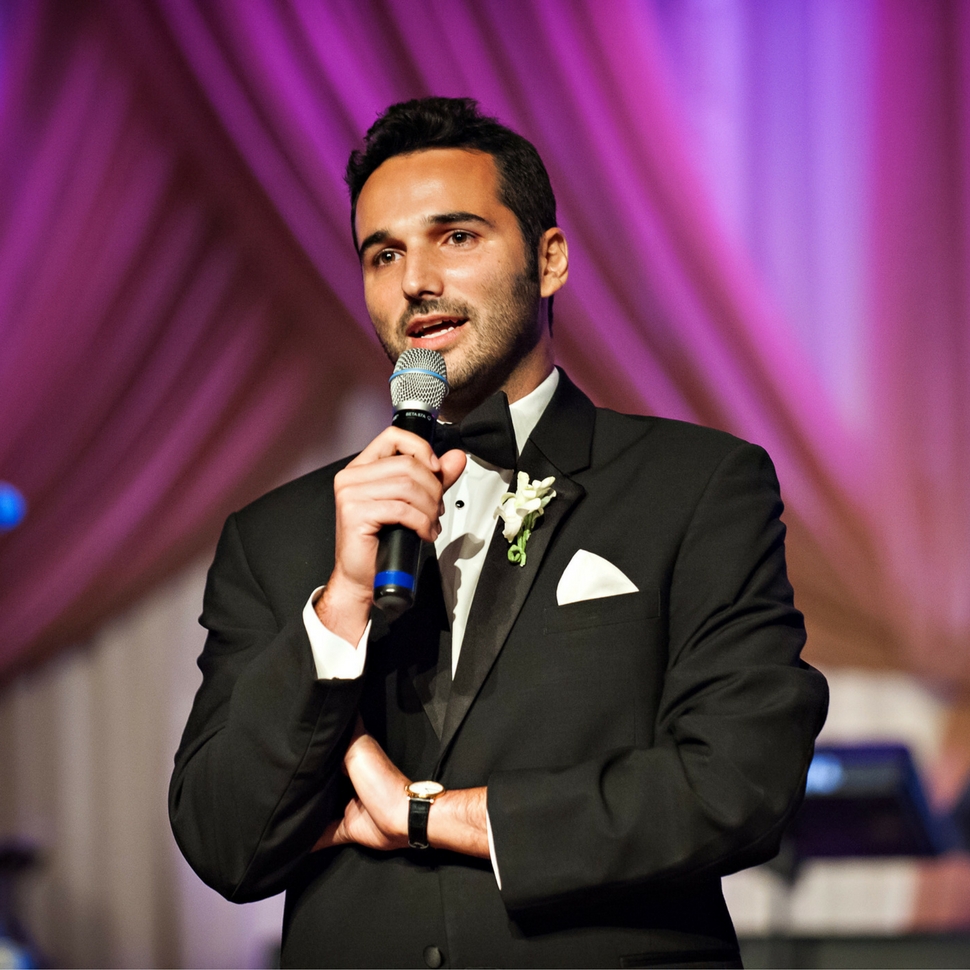Feature image: Jamie Hodari, CEO and Co-Founder Industrious
Up next on our Industry Game-Changers series is Jamie Hodari, co-founder of Industrious, a mold-breaking workspace brand that recently closed a $51M funding round. If you missed our first article on the series, click here to read it.
“Coworking redefined” reads the top and center of Industrious’ website.
Founded in 2013, Industrious intended to disrupt the coworking industry. Three years later, co-founders Jamie Hodari and Justin Stewart can say mission accomplished.
From the get-go, both founders had a clear idea of the type of workspace they wanted to create. “We set out to build a coworking space that would be beautiful, elegant, and professional. A coworking space that would be commensurate with the level of professionalism that American businesses expect to portray,” Hodari tells us.
Such a clear vision of what they wanted to offer was the result of Hodari changing the venue of a meeting very last-minute.
“I was running an organization whose US Headquarters were in a shared workspace. I had a very important meeting and at the last second I decided to change the venue from our HQ to a coffeeshop. I felt that the initial meeting space didn’t reflect our organization.”
“This moment was really eye opening to me. A mature company should be able to feel proud of and excited of having clients and people come to their space.”
Not long after this meeting, Industrious began to take shape.
Industrious broke paradigms about coworking and shared workspaces in general. They were among the first to fully embrace hybrid models, offering both open and shared space as well as private offices; proving that coworking isn’t for startups and freelancers only, but that Fortune 500 and large companies can also thrive in these spaces, and that these spaces can be successful anywhere–both in cities large and small, and anything in between.
“Demand for coworking exists in a really wide variety of types and sizes of cities. Before us (Industrious) there was a perception that coworking–particularly premium coworking–was concentrated on the coasts, and maybe Austin. We have proved that a coworking company can be successful in NYC and San Francisco, as much as in Columbus or Minneapolis.”
More than that, however, is the fact that Industrious has been at the forefront of teasing out the similarities between coworking and the hospitality industry.
According to Hodari, embracing hospitality as part of the coworking model is what will lead the public to treat the industry more as ‘workplace-as-a-service.’ This in part will help the workspace industry grow, as companies and businesses realize that the workplace doesn’t have to be managed internally.
A Mature Company, A Mature Market
Today, Industrious operates in 11 cities. And each and everyone of these locations is different from the others.
Coworking has significantly matured as an industry, and for Industrious, the factor that has allowed them to evolve and succeed in different markets is the brand’s clear understanding of what customers want.
“Coworking is moving towards a more mature industry, where I believe the coworking companies that have a real product vision and understanding of their customers will be able to expand the most,” Hodari says.
This means building your design and products based on what members want and need. A lesson that Hodari and Stewart learned when they opened their first few locations.
“At first, our spaces were based on my and my co-founder’s preferences. Over time, this goes from being the vision to working backwards from the needs and desires of our customer set, which varies by city and location.”
Hodari believes coworking will see an expansion of demand across two basic directions. The first being an expansion in the size and sophistication of companies working out of coworking spaces. And the second being an expansion in demand of the scope of services members expect to get from coworking operators.
“These are a self-reinforcing loop. As coworking spaces fulfil the needs of their customers, they will be able to better serve larger and more demanding customers.”
The Future of Industrious and Coworking
Industrious recently closed a $51M funding round, so no doubt we can expect big things from them in the upcoming months.
“We are going to use the proceeds from the round to double the size of our network.” So brace yourself for more Industrious locations in the US and possibly internationally.
Though Hodari didn’t say anything concrete, he did hint at the possibility of expanding the brand outside of the US, “We may have some exciting announcements on that front in the next 6 to 9 months.”
But, for the time being, the founders want to focus on improving and perfecting their brand, services, and products, as well as creating industry awareness.
“A lot of the advances in the coming year or two are partially going to be on the product improving side, and partially on helping larger businesses understand and see with their own eyes how much utilizing coworking can help them achieve talent management, acquisition, and retention.”
In the long-run, Industrious is hoping to crack the code that perfectly balances coworking with nursing and childcare services. “Many have tried balancing nursing and workspace, but most have been unable to make it work. It is our dream to someday figure out how to provide childcare as part of our offerings in a financially sustainable way.”
As for coworking in general, this is what Hodari is willing to bet his money on.
“I would be my money on the fact that there is going to be a coming wave of consolidation in the industry. Like any rapidly growing and maturing industry, there are starting to be real winners and losers in the space.”


















